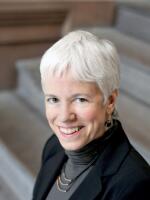New York voters will likely end up going to the polls three times this year, now that the state’s highest court has thrown out new district lines for Congressional and state Senate seats, likely delaying primaries originally scheduled for June.
When the New York Court of Appeals struck down the Congressional and state Senate district lines, saying Democrats who drew them unfairly gerrymandered the lines, it guaranteed that the June 28th primary elections for those seats would be delayed until later in the summer.
In a statement, the state Board of Elections says its staff is ready to “quickly develop a new Political Calendar for an August primary.”
The Board says there’s no reason, though, to delay the primaries for statewide offices, including for governor and lieutenant governor. And the state Assembly primaries will also take place in June as scheduled.
The general election will be held in November. All three elections will also include an early voting period, as well.
Republican State Party Chair Nick Langworthy backs the court’s decision, believing that new maps that will be drawn by a court-appointed special master will be fairer to the GOP. But he concedes there might be some glitches.
“I understand that this is going to be a bit chaotic as we try to navigate the impact and the steps forward,” Langworthy said.
The GOP chair says any inconvenience or confusion, though, is the fault of the democrats responsible for the lines, including Governor Kathy Hochul, Attorney General Tish James, Senate Leader Andrea Stewart-Cousins and Deputy Majority Leader Mike Gianaris.
“This chaos lies squarely with (them),” Langworthy said. “And every legislator that voted for these illegal maps.”
Candidates for the Congressional and state Senate primaries will have to undertake a new round of collecting signatures for another petitioning process, once the new lines are finalized.
Langworthy says candidates will face a “period of uncertainty.”
“Some people might find themselves without a seat to run for,” Langworthy said. “Perhaps some people that made announcements will reconsider those announcements, and get back in races that they had opted out of.”
The state’s left-leaning Working Families Party, which has endorsed over 50 Senate and Congressional candidates running in the primary, is more concerned about moving the date to August when turnout will likely be much lower, saying the court’s decision will “lead to voter confusion and disruption to the electoral process and calendar.”
Governor Hochul, speaking with reporters after an event in Yonkers Thursday, tried to downplay the controversy, saying that the court ruling was “not unexpected” and the judicial branch often has a different interpretation of matters than the legislature.
“We are still processing, this case just came down,” said Hochul. “There’s time to look at all the options, find out what’s best for the voters."
Before the new date for the additional primary election can be set, the court-appointed special master has to create the new district lines.
In mid-April, the state Supreme Court Judge, Patrick McAllister, who heard the original case, appointed Dr. Jonathan Cervas, to the positon. Cervas is a post-doctoral fellow at Carnegie Mellon University, who specializes in elections and gerrymandering, and who has assisted court appointed special masters in other states. He’ll have a $90,000 budget which will include the hiring of assistants.
A hearing will be held on May 6th at the Steuben County Courthouse in Bath.
The proposed lines need to be completed by May 16th, and those who disagree with the new lines will have four days to submit written comments.
Democrats in the state Senate, who objected to the court’s decision, have already said they plan to make their case to the special master.
The new lines have to be finished by May 20th.







